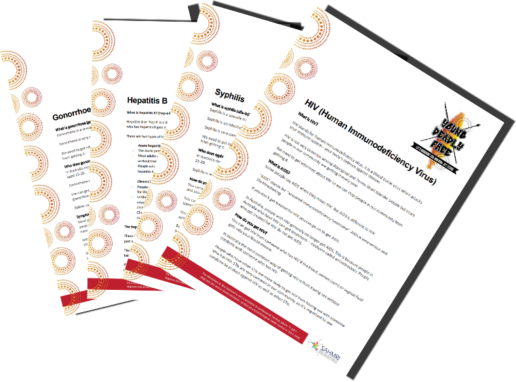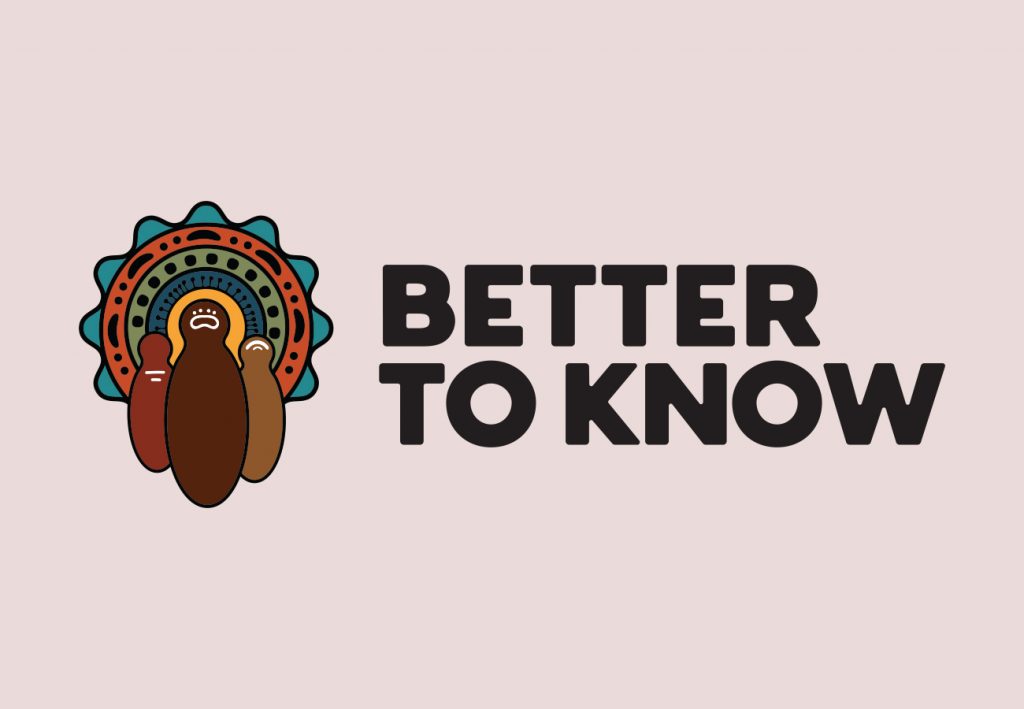What are Sexually Transmissible Infections (STIs)?
STI is short for sexually transmissible infection – an infection you can get from having sex with someone who has that infection.
Common STIs in remote communities are chlamydia, gonorrhoea, trichomonas and syphilis. HIV is also an STI.
Sexually Transmissible Infections (STIs)
STIs affect young people especially people aged 15–34 years and are very common in many remote and isolated Aboriginal and Torres Strait Islander communities.
You can have an STI and not know it, because many STIs have no signs or symptoms—that’s why it is important to get tested regularly.
Even if you are feeling well, it can be causing damage to your body. You can also pass the infection on to people you have sex with even if you feel well and don’t have symptoms.
STIs can be very dangerous for pregnant women. They can harm both the mum and baby. Testing as soon as you know you’re pregnant and during pregnancy is super important.

Videos About STIs
Educational Animation – All About STIs
An educational animation about sexually transmitted infections for young Aboriginal and Torres Strait Islander people.
Youth Yarn About – Facts About STIs
STIs are really common in our youth. It’s important that all our mob know about them, so we can protect ourselves and our communities. Watch this video to get the facts.
STI Fact Sheets
Factsheets on each of the STIs and BBVs affecting young people in Aboriginal and Torres Strait Islander communities are available in two formats – a longer form, as well as a shorter form outlining “the basics”.
There are also Factsheets on what’s involved in getting tested for STIs and BBVs
Click here for our factsheets about STIs.

Sexually Transmissible Infections (STIs) Testing
Getting tested for an STI is quick and easy.
As many STIs do not have symptoms, regular testing (every 6-12 month) is an important part of sexual health and wellbeing. It’s free, confidential, and usually just peeing in a cup and a blood test.
6-12 months
You should get an STI test every 6-12 months, even if you always use a condom – or usually do
FREE $0
STI tests are free at all bulk billing GPs and clinic, as well as your local Aboriginal Medical Service
100% Confidential
STI test result are private and confidential for those aged 16 years and older
Videos About Getting Tested
Educational Animation – All About STIs
Did you know young people aged 15-34 are the most at risk of getting a sexually transmitted infection (STI)? The good thing is, getting tested is easy, free and private.
Getting Tested Fact Sheets
Factsheets on getting tested are available in two formats – a longer form, as well as a shorter form outlining “the basics”.

Helpful Resources
Better to Know is a website for young Aboriginal and Torres Strait Islander men and women. It provides detailed information on STIs and BBVs, and on getting tested– in two sections, Men’s Business and Women’s Business. You can organise to be sent a reminder SMS to have a sexual health check. You can also use the website to notify recent sex partners that they need to have a sexual health check. This can be done anonymously – they won’t know that it was you that sent the message. The clinic can help you with this.

Young Deadly Free is a project by the University of Queensland Poche Centre for Indigenous Health (formerly the South Australian Health and Medical Research Institute). © UQ POCHE 2024